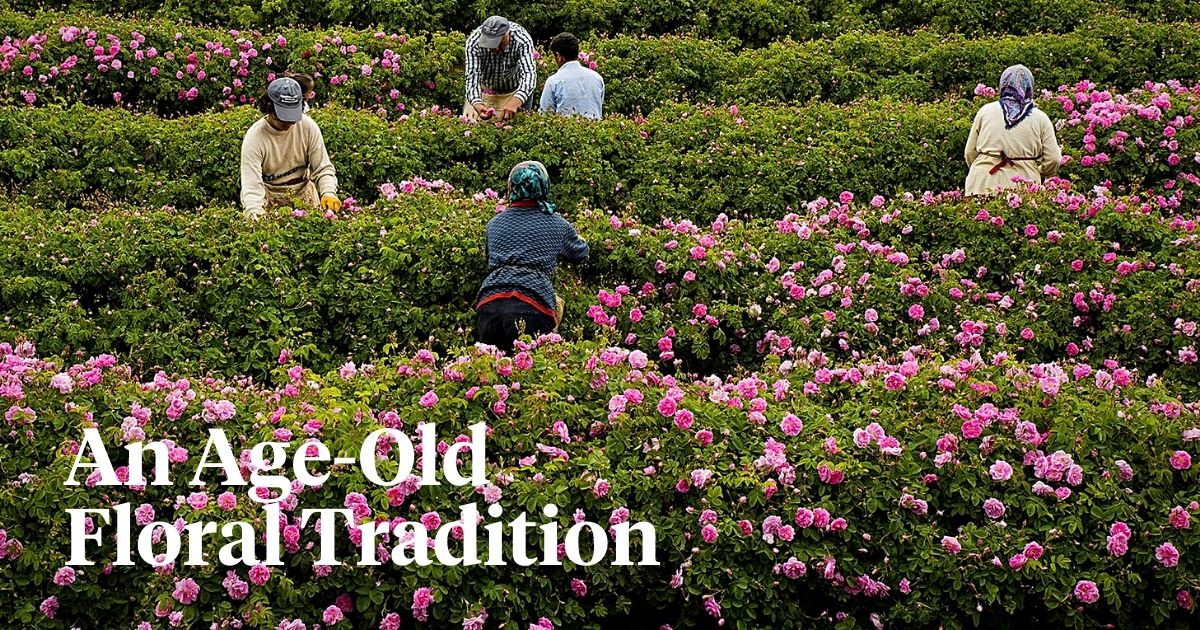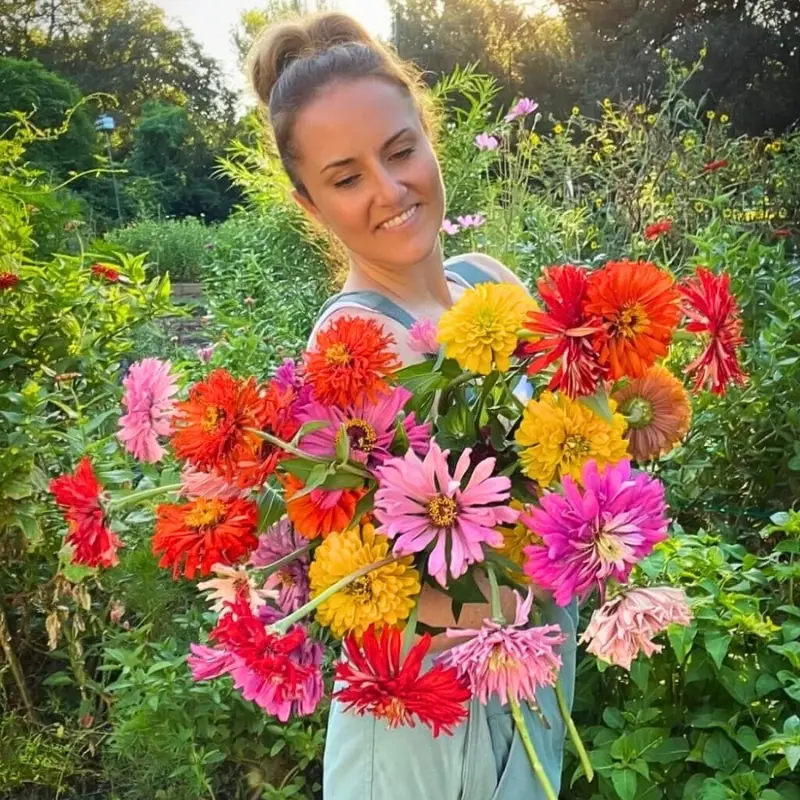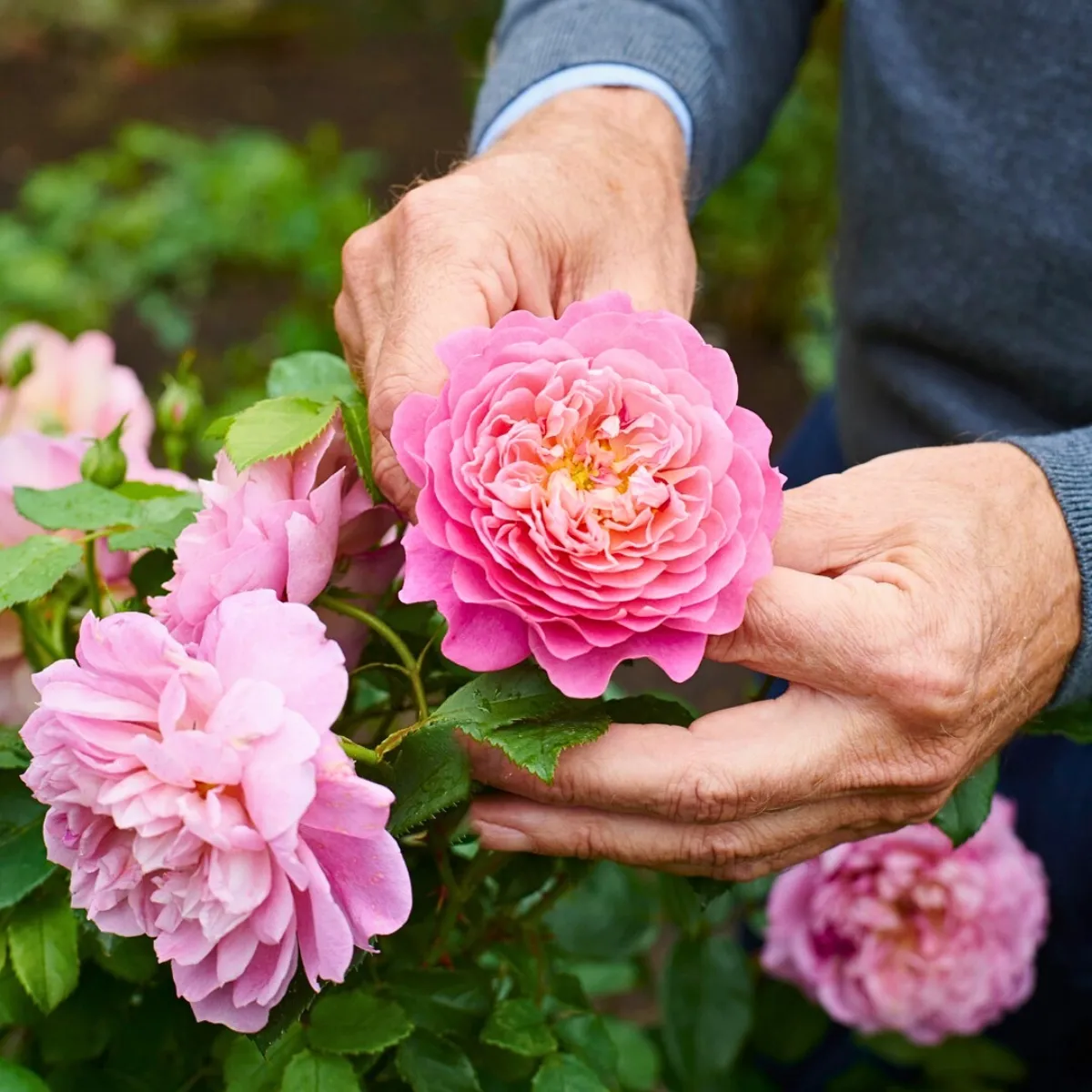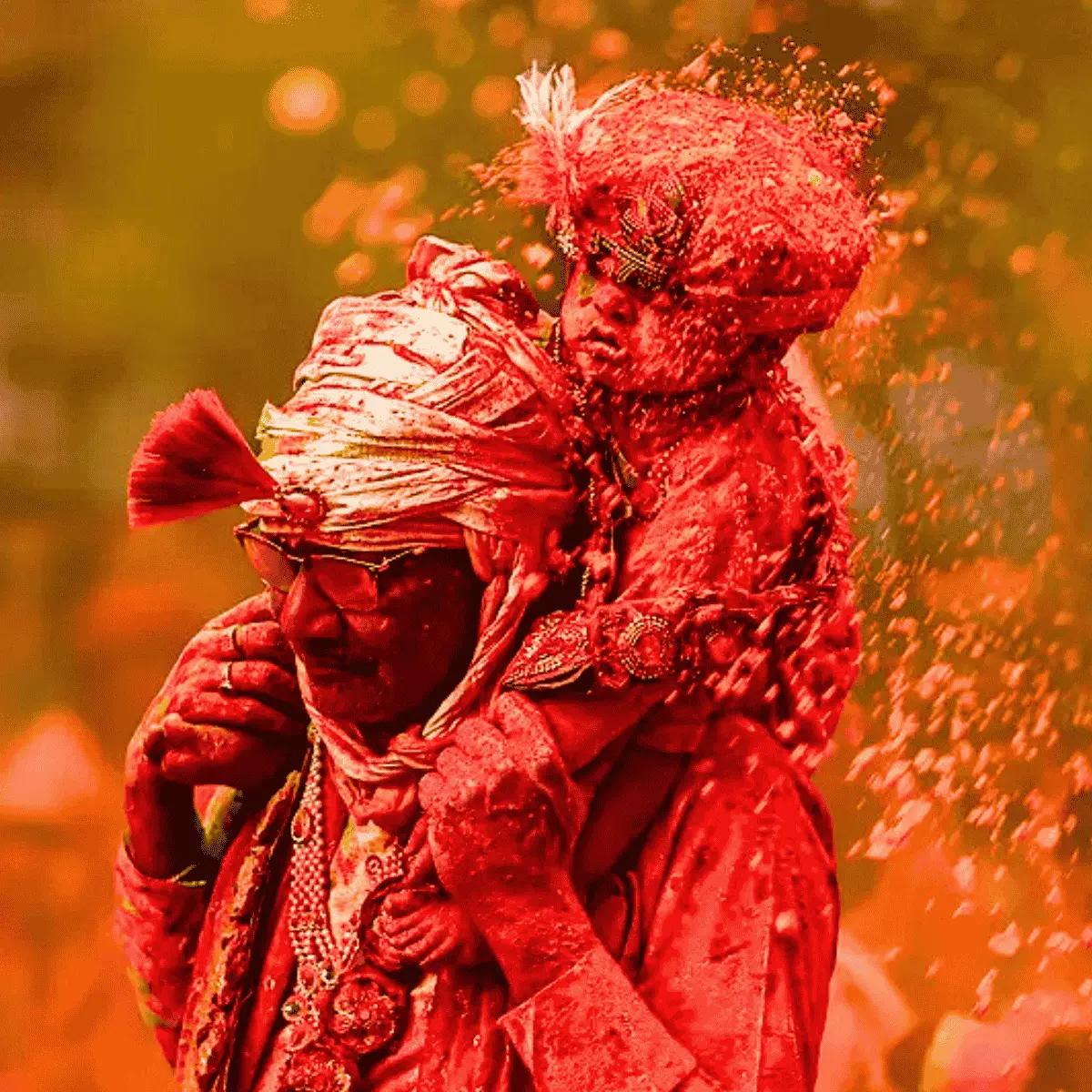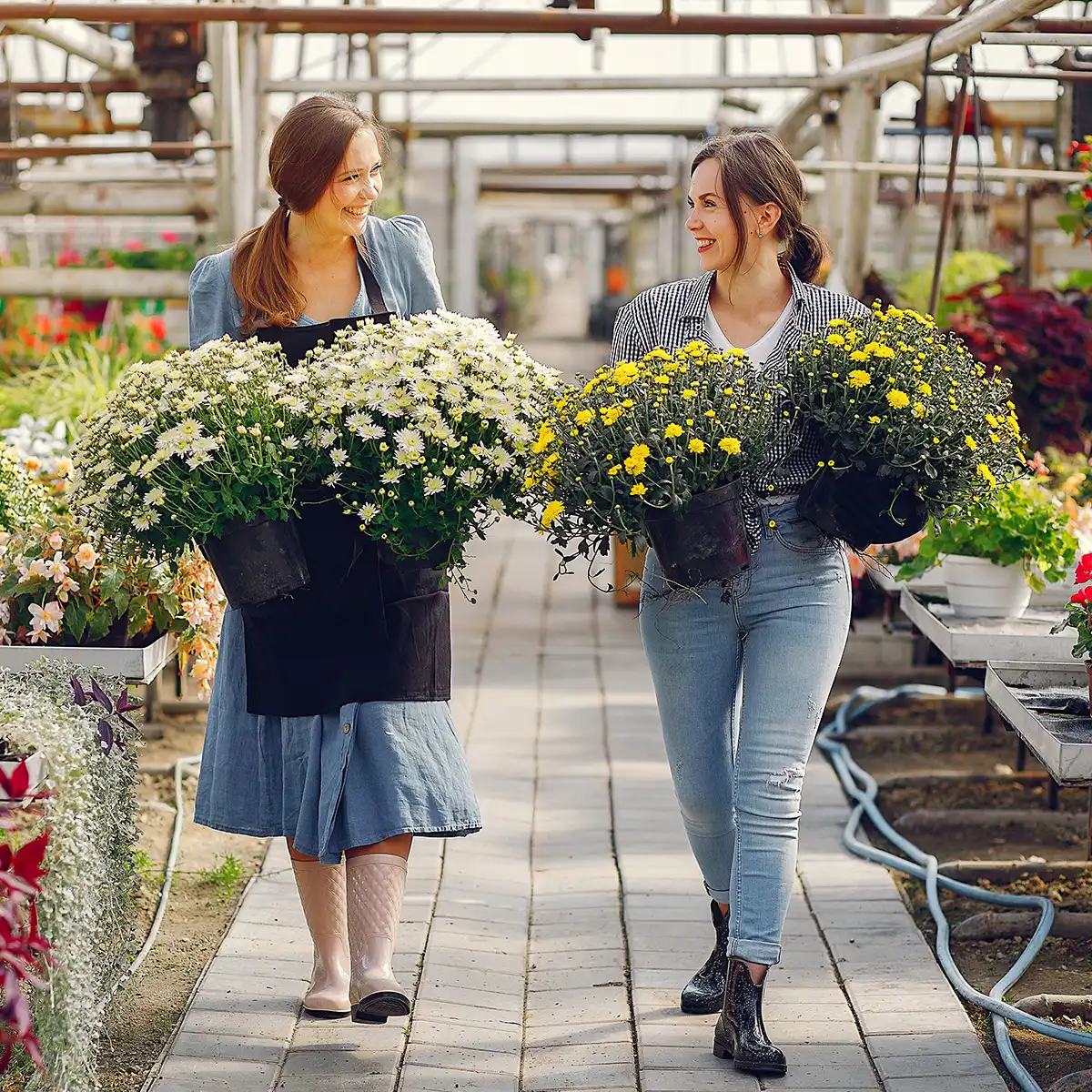Nestled in the southwestern region of Turkey, the picturesque city of Isparta boasts a remarkable history deeply intertwined with its rich floral heritage. From the acres on end overgrown with varieties of roses to the rich purple of its lavender fields, Isparta has earned a reputation as a floral haven for flower enthusiasts, plus a recognition as a place of natural beauty.
With its ideal climate, fertile soil, and a long-standing horticultural tradition, Isparta has thriven into a vibrant nucleus for the cultivation of exquisite roses and earned itself a reputation as the country's flower-growing capital. So, what is the flower history behind Isparta? What makes its landscapes so fragranced, and what is the significance of flowers in this intriguing Turkish city?
The Evolution of Isparta and Its Floral Culture
Isparta, located in the Mediterranean region of Turkey, has a rich history dating back thousands of years to the Roman period. It was said to relate to the ancient city of Baris, which was part of the Roman province of Pisidia. It later became a Christian bishopric, a suffragan diocese of the Metropolitan See of Antioch of Pisidia, the capital of the province.
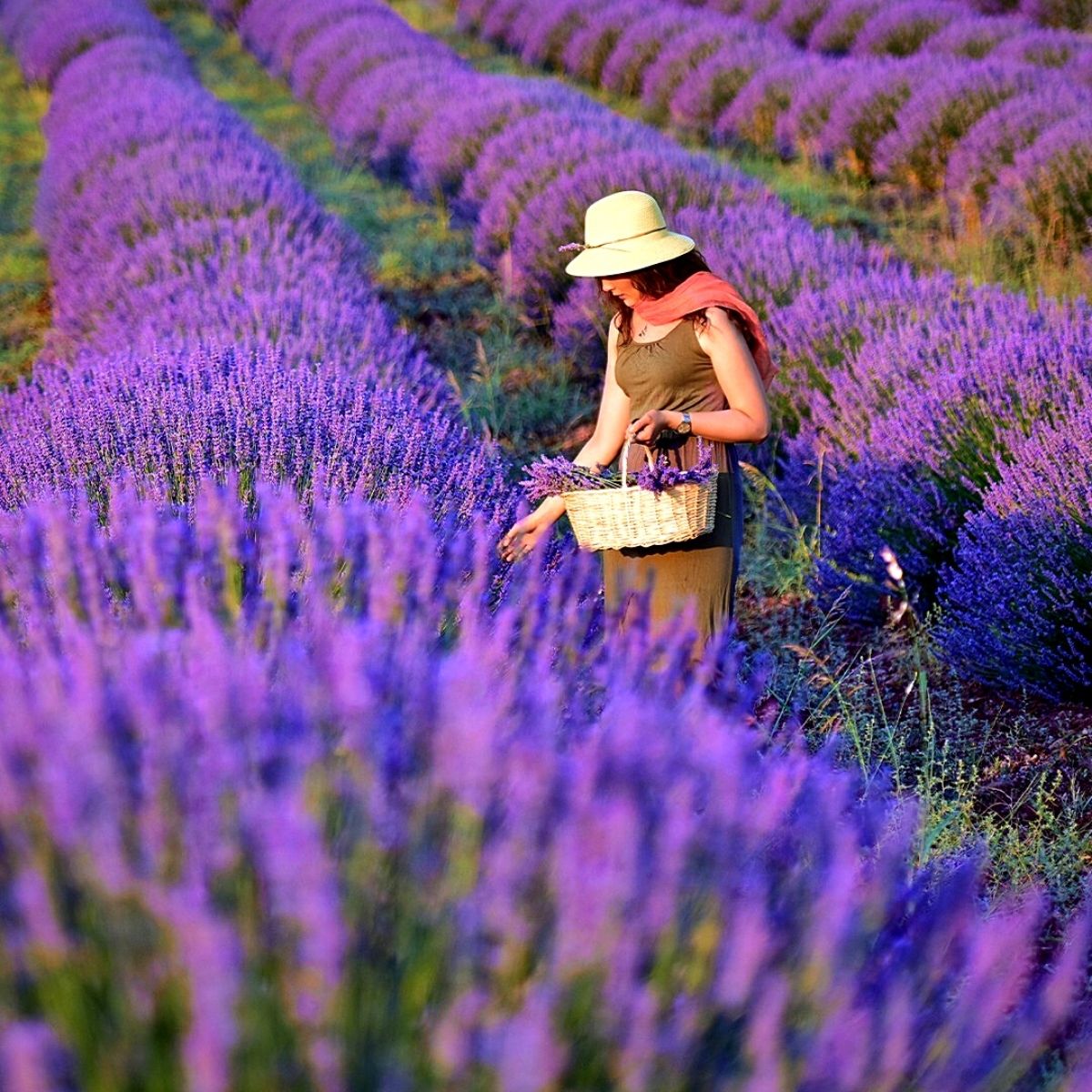
Photo by @goisparta
Over the centuries, Isparta was influenced by various civilizations, including the Hittites, Phrygians, Lydians, Persians, Greeks, and Romans. These cultures acknowledged the region's agricultural potential and contributed to the development of horticulture due to the perfect conditions that attracted settlers.
In the late 13th century, Isparta became part of the Hamidids, and in 1381, it was sold to the Ottoman Sultan Murad I by the Hamidid Emir. In the late 19th century, Muslim immigrants from the Balkans settled around the region. Some accounts indicate that Bulgarian emigrants brought the knowledge of Kazanlik rose water production with them to the city.
The history of rose-growing in Isparta likewise dates back hundreds of years. The flower's production in the city, possibly, started with Müftüzade Gülcü İsmail Efendi (1840 -1915), a merchant. In the 1870s, he brought with him to Isparta a rose plantlet from Kazanlik region in Bulgaria.
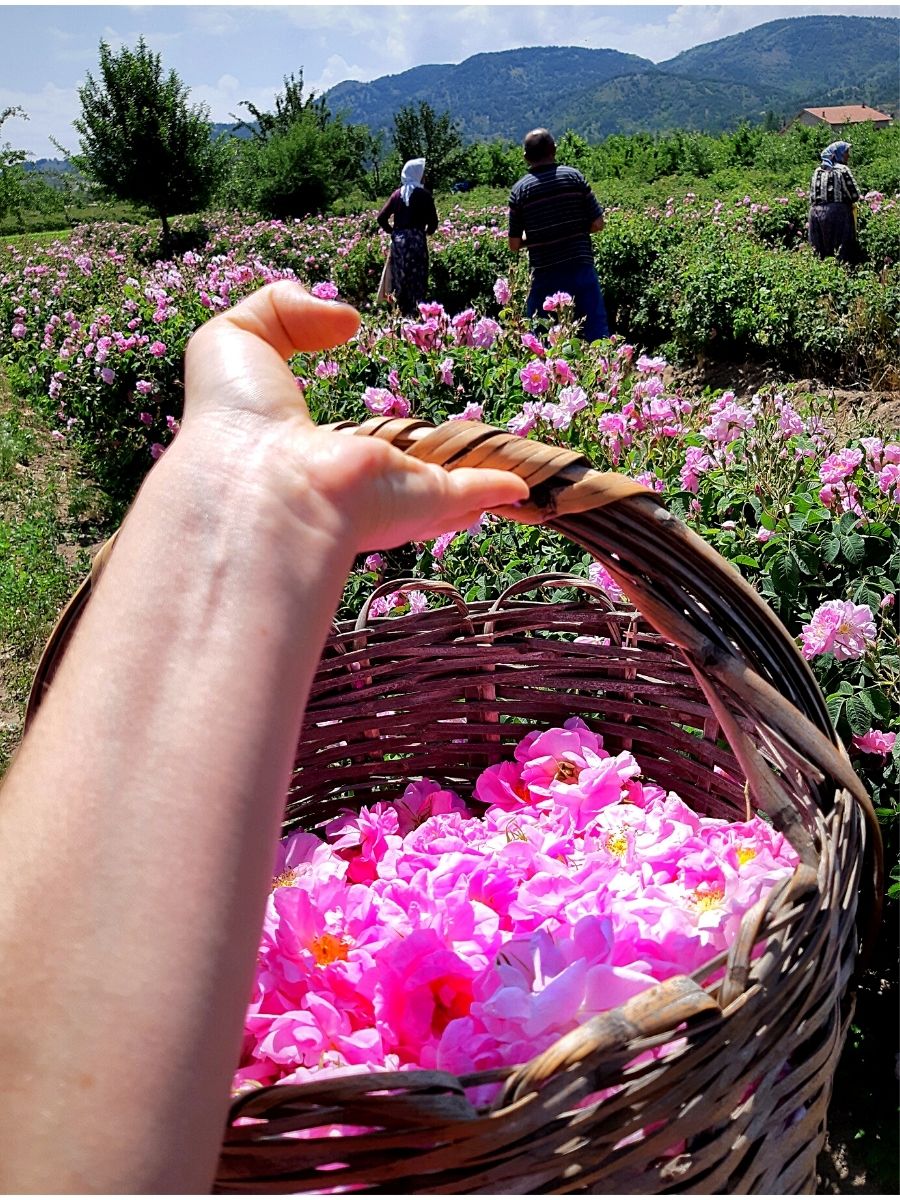
Photo by AYLİN GÖRAL
Later, he learned about extracting rose oil from a Bulgarian connection and attempted to grow the flowers for this purpose. Despite the initial challenges and failures, Efendi persisted and, after some years, successfully cultivated these flowers.
He is said to be the first person to bring the oil rose to Isparta and to, later, produce the first rose oil. And for this reason, he was later named ‘Gülcü İsmail Efendi’. His success inspired other locals to establish their own rose farms, transforming Isparta into an area synonymous with roses.
As a result, the small town became home to a specific variety of roses named Rosa Damascena Mill, a variety grown exclusively for the production of rose oil and rose water. Rose oil is extensively used in cosmetic products, while rose water is mainly sold as a freshener.

Photo by @goisparta
In addition to roses, lavender fields soon became more and more common in the city. For example, the Valley of Lavender, located in the Kuyucak Village of Keciborlu, offers a spectacular view that could easily rival the Provence villages of France.
The Flowers of Isparta
As has been earlier pointed out, Isparta is renowned for its production of several flower varieties. But roses and lavenders are the most prominent. The city's rose production, in particular, has earned it the nickname ‘the City of Roses’.
Isparta's roses are highly valued for their exceptional natural fragrance and are used in the production of various products such as rose oil, rose water, and rose-based cosmetics. The roses most commonly used in perfumery processes are the Turkish rose, the Damask (or Damascene rose) and Rose Centifolia, which is also grown around Grasse in the south of France, and generally considered to produce the highest quality rose absolute. In fact, Lancôme, a French luxury perfumes and cosmetics house uses this rose for its perfumery.
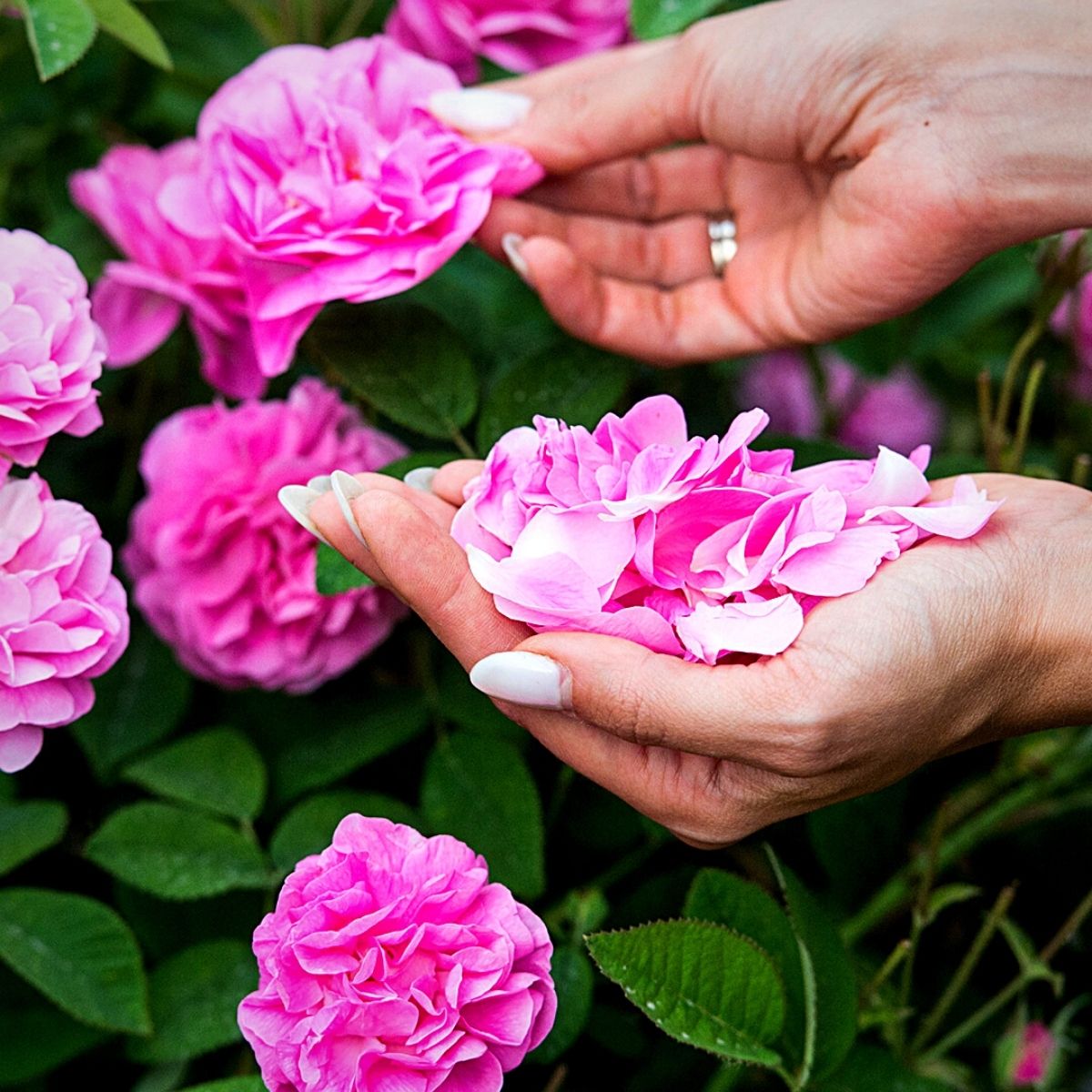
Photo by @goisparta
Lavender (Lavandula angustifolia), another popular flower in the region, is known for its soothing aroma. It is harvested when in full bloom and dried to preserve its fragrance and therapeutic properties. The essential oil extracted from lavender is widely used in perfumes, cosmetics, and aromatherapy products.
Isparta's rose cultivation is particularly worth mentioning. The city is famous for its Damask roses (Rosa Damascena), which are highly valued for their intense natural fragrance and oil content. The rose blossoms are handpicked during the early morning hours when their scent is the strongest. These delicate flowers are then processed through steam distillation to extract rose oil, also known as rose attar.
And just in case you didn't know, Isparta's rose oil is considered among the finest in the world and is a crucial ingredient in the global perfume industry.
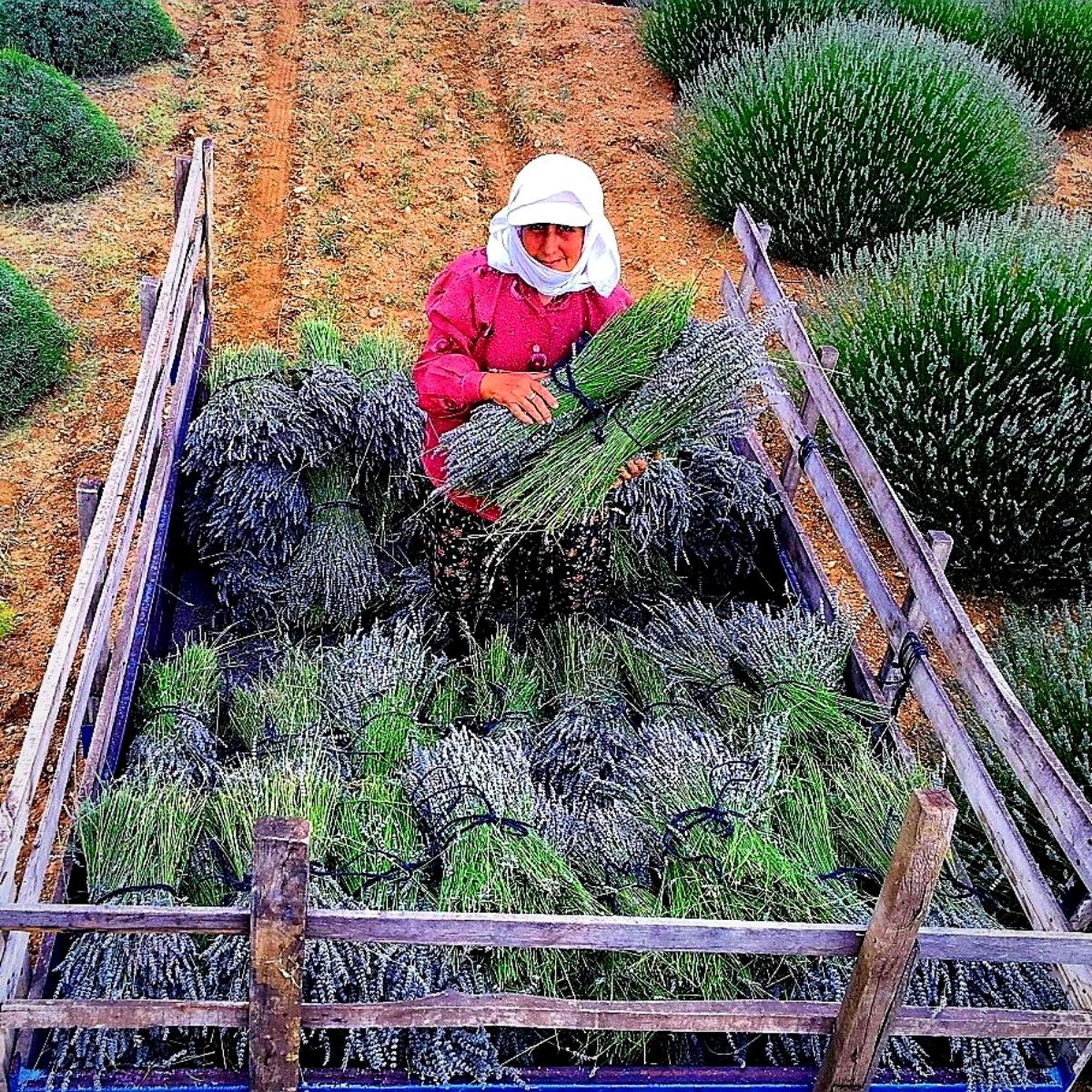
Photo by @goisparta
Ideal Conditions for Flower Cultivation and the Harvest Season
Isparta's climate is characterized by hot, dry summers and mild winters. These conditions offer an ideal environment for flower cultivation. The region benefits from abundant sunshine, moderate rainfall, and a distinct temperature variation between day and night, all of which are conditions that contribute to the growth of high-quality flowers with vibrant colors and intense fragrances.
The flowers’ harvest season in Isparta begins in May and lasts until the end of June. During this period, many tourists visit the city to experience the delightful sight of the rose and lavender fields. Visitors can, as well, pick roses themselves from the fields, working side by side with the locals, and learning about the processes applied to the flowers after their harvest.
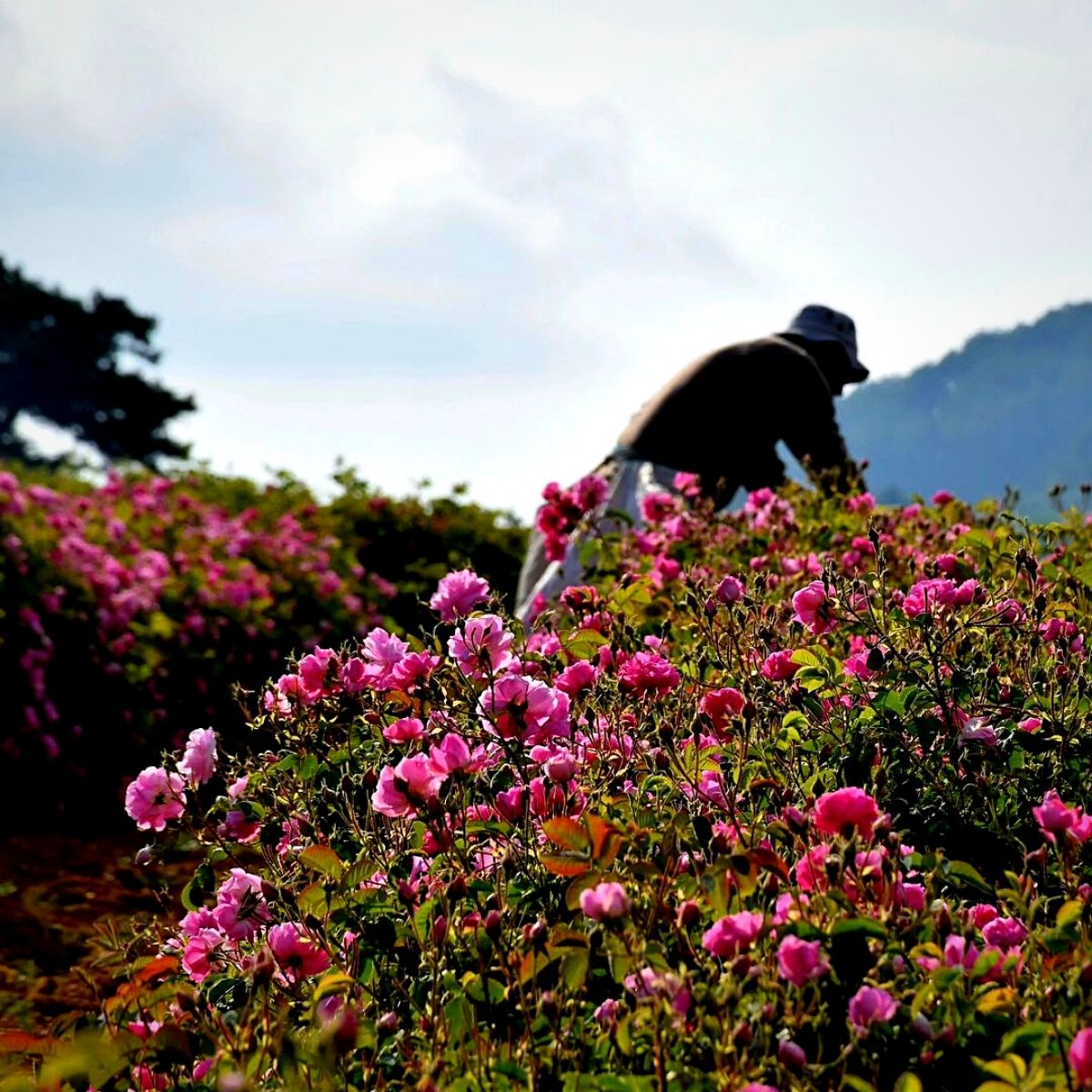
Photo by @goisparta
The result of this flower industry in Isparta has been the provision of employment opportunities and contribution to the local economy. Flower cultivation supports the livelihoods of many residents, both directly and indirectly, through jobs in farming, processing, and the production of floral products. What is more, Isparta's flower festivals and events attract tourists from around the world, promoting cultural exchange and boosting the city's tourism industry.
Worth mentioning is that the city supplies roughly 65% of the world’s rose oil needs, making it a global leader in the industry.
What About the Benefits to the Local Community?
Flower cultivation in Isparta not only provides economic benefits but also contributes to the well-being of the local community. The cultivation and processing of these flowers create a sense of pride and cultural identity among the residents, as they continue to preserve and pass down traditional knowledge and practices.
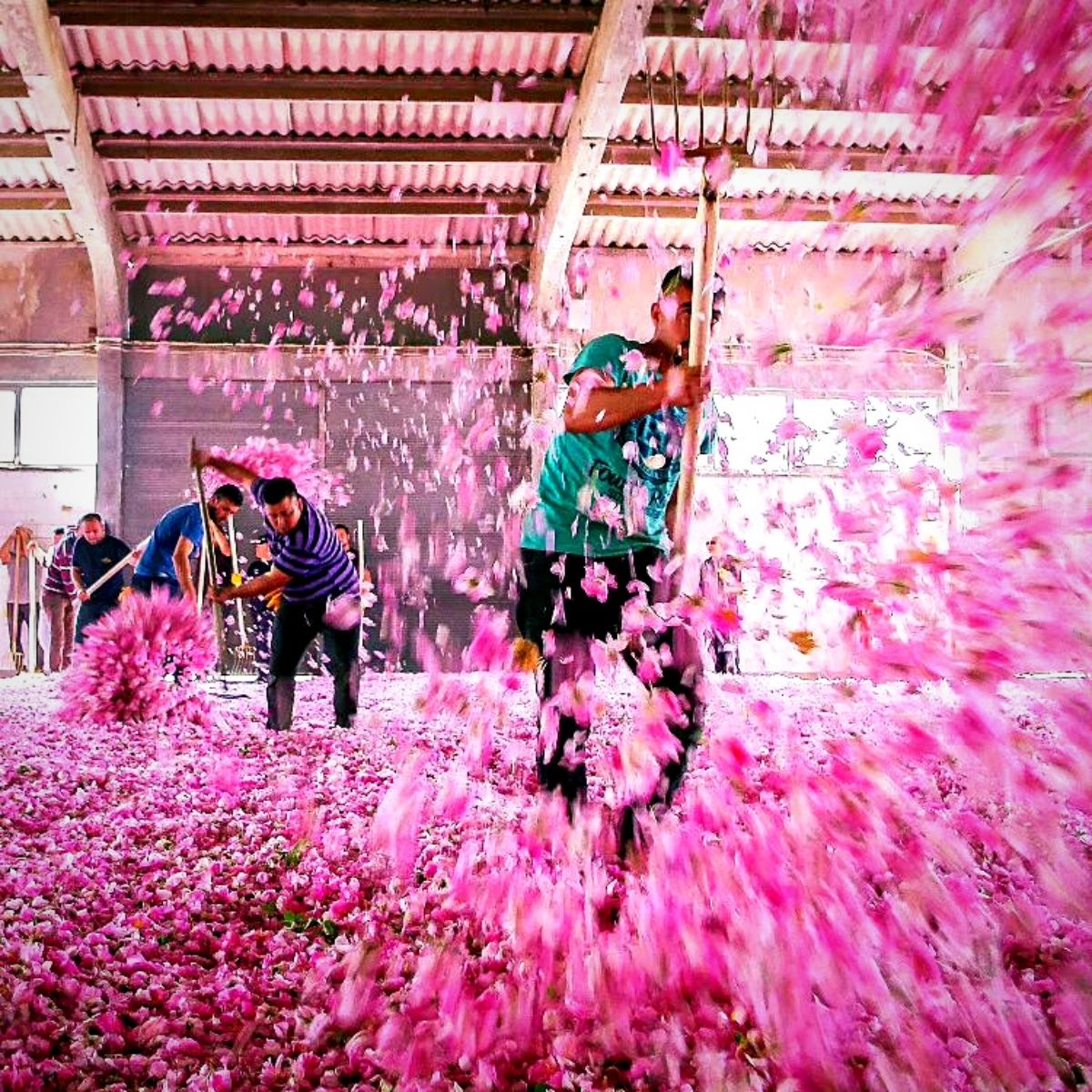
Photo by @goisparta
Additionally, the floral industry promotes sustainable farming practices, as flowers are often grown using organic methods, minimizing the use of synthetic pesticides and fertilizers. Many farmers prioritize organic farming practices, reducing the use of synthetic chemicals and promoting biodiversity in return. This approach helps protect the environment and ensures the long-term sustainability of flower production in the region.
Additionally, with natural fragrances known to have a mix of beneficial effects on people, these exquisite flowers possess therapeutic properties that benefit the local community. The fragrances and essential oils derived from roses and lavender are used in aromatherapy, encouraging relaxation, stress relief, and overall well-being. Essentially, flowers generally provide mental therapy.
You can also read more about the therapy capabilities of various floral scents in oil diffusers.

Photo by @goisparta
The availability of locally grown flowers also enhances the aesthetics of the city, providing a pleasant environment for residents and visitors alike.
Moreover, Isparta's love for flowers is celebrated through various festivals and events. A case in point is the Isparta Rose Festival, held annually in May which is a highlight of the city's cultural calendar. During the festival, the streets are adorned with rose decorations, and locals and visitors in the same way participate in parades, concerts, and traditional folk dances. It is a festival that showcases the deep-rooted connection between Isparta's identity and its flourishing flower industry.
Accordingly, this city’s flower-growing industry has gained international recognition, especially for its commitment to preserving and promoting the cultivation of roses and its contribution to the global horticultural community.

Photo by @goisparta
A Flower Tradition That Spans (and Lingers for) Generations
Of the hundreds of rose species available, 24 of them are documented in the Turkish flora. The city of Isparta often referred to as the ‘Turkish City of Roses’ continues to maintain its age-old tradition of rose cultivation. This is helped by its rich history, ideal conditions for flower cultivation, and economic and cultural significance which are continually modeling it into a prospering hub for the floral industry.
Rosa Damascena Mill, also known as Isparta Rose, Pink Oil Rose, Oil Rose, Gum Rose, or Damascus Rose is the species mainly grown in Isparta, and its product, rose oil is now an indispensable product in perfumery, medicine, and cosmetics industries.
On the other hand, its naturally produced rose water is used as a flavor in some foodstuffs and desserts as it doesn’t contain harmful substances, as well as in make-up and body-cleaning products due to its ability to nourish the skin and tighten the tissues.
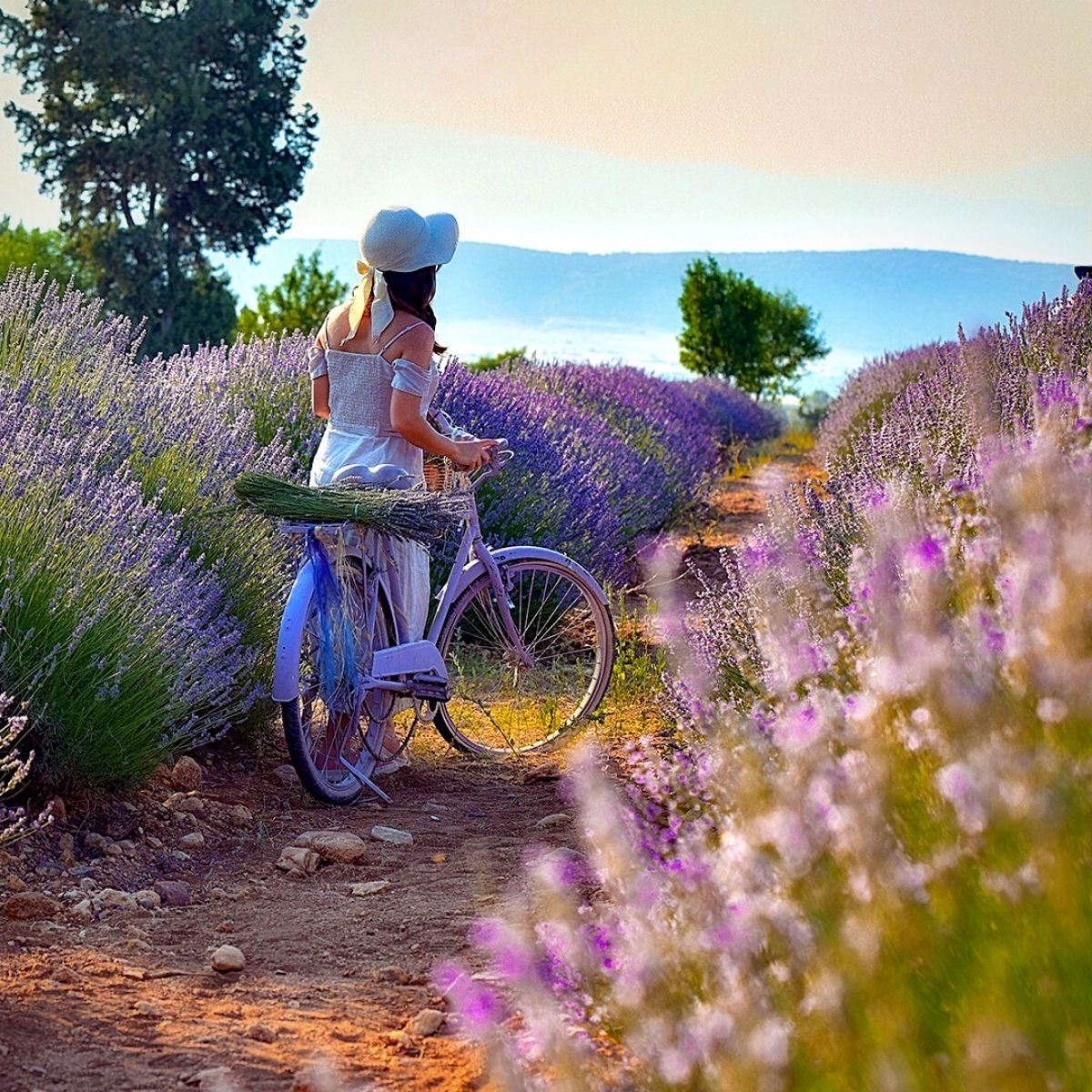
Photo by @goisparta
With these many uses and benefits, it’s no surprise that Isparta goes all-out to retain its rose cultivation tradition… of course, completed by the cultivation of lavenders and other flowers.
Header and feature images by @goisparta

